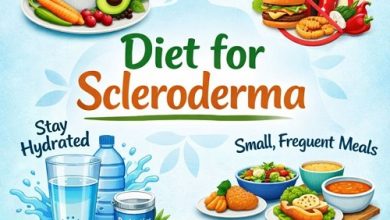The Bedroom Diet: Eat This, Avoid That, Perform Better

When most people think of diet and nutrition, they focus on weight loss, fitness, or heart health. But what if the foods you eat could also influence another important aspect of your life—your performance in the bedroom? Welcome to The Bedroom Diet, a concept that links nutrition directly to intimacy, sexual health, energy, and confidence between the sheets.
The Bedroom Diet isn’t about cutting calories or following another restrictive eating plan. Instead, it’s about making intentional choices that support hormonal balance, blood flow, mood, and stamina—all of which affect sexual performance. Just as an athlete eats to perform better on the field, you can eat to perform better in the bedroom.
The science behind The Bedroom Diet, highlight foods that enhance desire and endurance, and identify the common culprits that sabotage your sex life. Whether you’re looking to boost libido, improve erectile function, or simply feel more confident and energetic with your partner, what you eat may be the missing link.
Why Nutrition Matters in the Bedroom
Sexual performance is influenced by a delicate balance of physical, psychological, and emotional factors. While stress, relationship dynamics, and mental health play key roles, nutrition is a foundation that’s often overlooked.
Here’s how food affects intimacy:
- Hormone Regulation
Testosterone, estrogen, and progesterone drive libido in both men and women. Deficiencies or imbalances can lead to low desire, erectile dysfunction, or vaginal dryness. Nutrients such as zinc, vitamin D, and healthy fats are essential for hormone production. - Blood Flow & Circulation
Erections, arousal, and physical response all depend on proper circulation. Diets rich in antioxidants, nitrates, and omega-3 fatty acids keep blood vessels flexible and reduce plaque buildup. - Energy & Stamina
Sexual activity is physical exercise. Foods that stabilize blood sugar and provide sustained energy help maintain endurance and prevent fatigue in the middle of intimacy. - Mood & Mental Health
Neurotransmitters like serotonin and dopamine influence desire and satisfaction. Diets high in processed sugars and alcohol may disrupt mood, while whole foods and omega-3s can enhance it. - Confidence & Body Image
Eating well improves physical health, boosts energy, and sharpens self-confidence—all of which directly impact how you feel in the bedroom.
Eat This: Foods That Boost Bedroom Performance
The Bedroom Diet prioritizes foods that enhance libido, improve circulation, balance hormones, and support energy. Here are the key categories:
1. Oysters and Zinc-Rich Foods
Oysters have long been celebrated as aphrodisiacs—and science backs the claim. They are loaded with zinc, a mineral critical for testosterone production, sperm quality, and egg health. Low zinc levels are linked to decreased libido and infertility.
Other sources: pumpkin seeds, chickpeas, beef, cashews.
2. Dark Chocolate
Dark chocolate (70% cocoa or higher) contains flavonoids that improve blood flow, along with compounds that stimulate endorphins and dopamine. Eating small amounts can increase pleasure and improve arousal by enhancing circulation to sexual organs.
Tip: Choose unsweetened or minimally processed dark chocolate for maximum benefit.
3. Fatty Fish
Salmon, mackerel, sardines, and tuna are rich in omega-3 fatty acids, which reduce inflammation, improve cardiovascular health, and enhance circulation. Omega-3s also support dopamine levels in the brain, increasing feelings of desire and bonding.
Other options: flaxseeds, walnuts, chia seeds.
4. Leafy Greens
Spinach, kale, and Swiss chard are high in dietary nitrates that convert to nitric oxide—a compound that relaxes blood vessels, increases circulation, and improves erectile function. This is the same mechanism behind medications like Viagra.
Other nitrate-rich foods: beets, arugula, celery.
5. Avocados
Avocados are loaded with healthy monounsaturated fats, potassium, and vitamin B6—all of which help boost circulation, hormone production, and energy. The Aztecs even referred to the avocado tree as “ahuacatl,” meaning “testicle tree,” because of its reproductive symbolism.
6. Pomegranate
Often called “nature’s Viagra,” pomegranate juice is rich in antioxidants that protect blood vessels and improve circulation. Studies show that regular consumption can improve erectile response and increase testosterone levels.
7. Nuts and Seeds
Almonds, walnuts, flaxseeds, and sunflower seeds provide arginine, an amino acid that supports nitric oxide production. They’re also rich in magnesium and healthy fats, both crucial for energy and hormone health.
8. Berries
Strawberries, blueberries, and raspberries are packed with antioxidants and flavonoids that protect cardiovascular health and improve circulation. They also reduce oxidative stress, which is linked to age-related decline in sexual performance.
9. Spices: Chili Peppers and Ginger
Capsaicin, the compound that gives chili peppers their heat, boosts metabolism, stimulates nerve endings, and releases endorphins. Ginger improves circulation and has been used for centuries as a natural aphrodisiac.
10. Watermelon
Watermelon contains citrulline, an amino acid that relaxes blood vessels and enhances circulation, similar to how ED medications work. Eating watermelon regularly may reduce mild erectile dysfunction symptoms.
11. Whole Grains
Oats, quinoa, and brown rice provide steady energy by stabilizing blood sugar, reducing stress, and improving stamina. They also contain B vitamins that regulate hormones and energy metabolism.
12. Probiotic Foods
Gut health influences hormone regulation and mood. Yogurt, kefir, kimchi, and sauerkraut improve digestion, boost serotonin production, and support overall vitality.
Avoid That: Foods That Sabotage Bedroom Performance
Just as some foods act as natural aphrodisiacs, others can dampen desire, reduce stamina, and even cause embarrassment in the bedroom. The Bedroom Diet strongly advises avoiding or minimizing these:
1. Processed and Fried Foods
High in trans fats and refined oils, these foods clog arteries, reduce circulation, and lower testosterone. Long-term consumption increases the risk of erectile dysfunction and low libido.
2. Excessive Alcohol
While a glass of red wine may relax inhibitions, too much alcohol acts as a depressant, lowering testosterone and reducing sensitivity. Heavy drinking is a leading cause of temporary erectile dysfunction.
3. Sugary Snacks and Drinks
Candy, soda, and pastries spike blood sugar, followed by a crash that leaves you fatigued and irritable. Chronic high sugar intake also contributes to insulin resistance and reduced sexual function.
4. Processed Meats
Bacon, hot dogs, and sausages contain preservatives and high levels of saturated fats that damage vascular health and disrupt hormone balance.
5. Excessive Dairy
While small amounts of dairy can be part of a balanced diet, excessive intake—especially of processed cheese—may contribute to hormonal imbalances due to synthetic hormones often used in dairy production.
6. Refined Carbohydrates
White bread, pasta, and pastries cause rapid spikes in blood sugar, leading to inflammation, weight gain, and fatigue—all of which negatively impact performance.
7. Excessive Caffeine
Moderate coffee intake boosts alertness and circulation, but overconsumption increases anxiety, disrupts sleep, and lowers libido. Poor sleep is one of the fastest ways to reduce desire.
8. High-Sodium Foods
Processed snacks and fast food are loaded with salt, which raises blood pressure and constricts blood vessels—reducing arousal and erectile strength.
Lifestyle Habits That Complement The Bedroom Diet
Nutrition is only one part of the equation. To fully benefit from The Bedroom Diet, pair it with lifestyle choices that maximize performance:
- Exercise regularly: Cardiovascular workouts improve stamina and circulation; strength training boosts testosterone.
- Sleep well: Poor sleep lowers libido and reduces testosterone levels.
- Manage stress: Chronic stress increases cortisol, which suppresses sexual hormones.
- Stay hydrated: Dehydration reduces energy, stamina, and lubrication.
- Limit smoking: Nicotine damages blood vessels, reducing blood flow to sexual organs.
A Sample “Bedroom Diet” Day
Here’s a one-day example to see how you can implement The Bedroom Diet in real life:
- Breakfast: Overnight oats with chia seeds, walnuts, blueberries, and a drizzle of honey.
- Snack: A small bowl of pomegranate seeds and dark chocolate squares.
- Lunch: Grilled salmon over spinach and quinoa, with avocado slices.
- Snack: Greek yogurt with pumpkin seeds and strawberries.
- Dinner: Lean chicken breast with roasted beets, garlic sautéed kale, and brown rice.
- Evening treat: Herbal tea with a few almonds and ginger slices.
This meal plan balances hormone-supporting nutrients, circulation-boosting foods, and steady energy sources while avoiding performance-killers like processed sugar or heavy fried meals.
Final Thoughts:
The Bedroom Diet isn’t a fad—it’s a lifestyle approach that connects food choices with intimacy, confidence, and vitality. By eating circulation-boosting foods like leafy greens and fatty fish, adding hormone-supporting nutrients like zinc and omega-3s, and cutting back on processed, sugary, and fried foods, you can transform your performance and enjoyment in the bedroom.
Sexual health is an essential part of overall well-being. Just as you wouldn’t fuel a luxury car with cheap gasoline, you shouldn’t fuel your body with foods that drag you down. Instead, feed your body—and your relationship—with foods that energize, balance, and ignite desire.
When you embrace The Bedroom Diet, you’re not just eating for your body—you’re eating for your passion, your confidence, and your connection with your partner.




